General Discussion
Related: Editorials & Other Articles, Issue Forums, Alliance Forums, Region Forums5 Charts on the Fiscal Bluff: "Stocks: The Danger Lurking AFTER A Fiscal Cliff Deal Is Reached"
Good reasons to call the Fiscal Bluff....
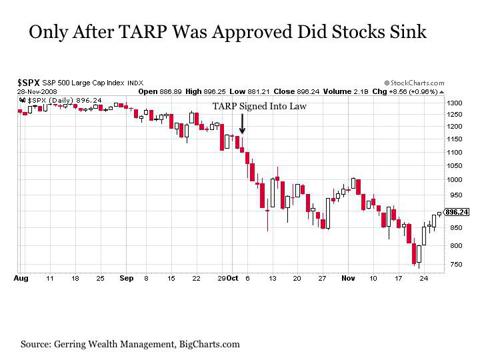
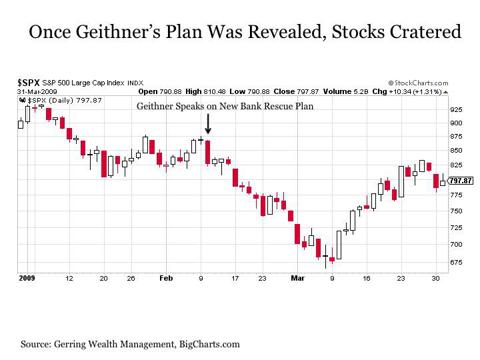
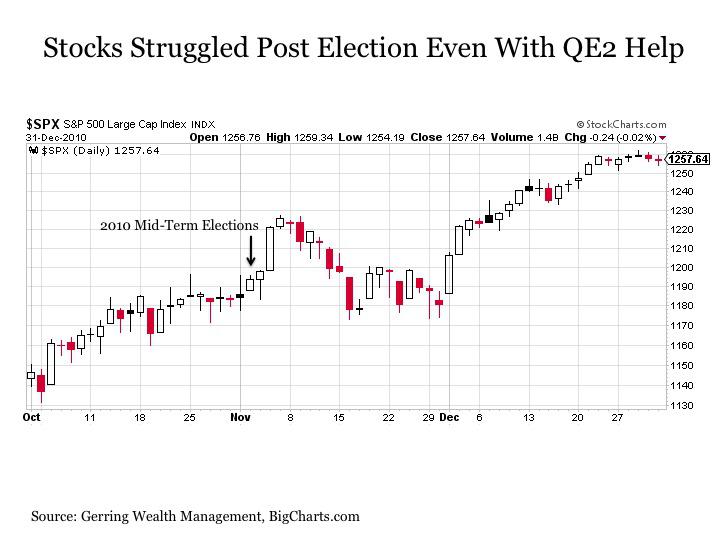
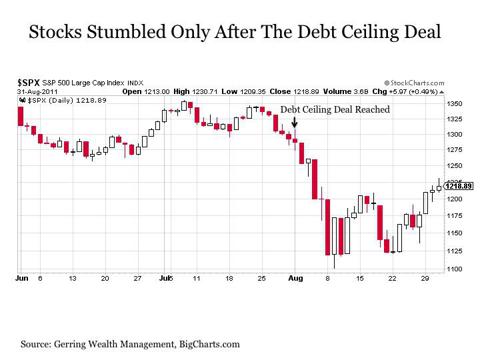
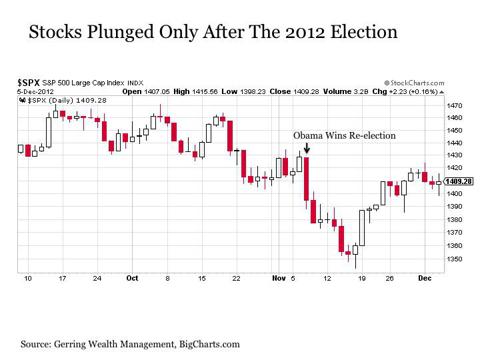
"Thus, history suggests that it would not be at all surprising to see stocks head lower, not higher, following an agreement on the fiscal cliff. Of course, it could play out differently this time once a deal has been reached. More specifically, one key advantage stocks have this time around is the fact that the Fed is already in stimulus mode having launched QE3 back in September and is likely to double down on balance sheet expansion with the announcement of U.S. Treasury purchases in mid December. This is an enormous tailwind for stocks. But even with this edge, the idea that stocks will rally following a compromise deal on the U.S. fiscal cliff is far from a foregone conclusion. To the contrary, it would not be surprising to see stock markets move lower in the days following an agreement, particularly if the deal appears unfavorable to the financial markets and the business sector.
A final thought before closing. If stocks have shown the propensity to move sharply lower once political risk has been removed, does this suggest that stocks might actually rally if we were to maintain this political risk and simply go over the U.S. fiscal cliff? By going over the cliff, at least companies would finally have clarity in regards to the fiscal policy environment under which they are operating. Moreover, any fiscal deals that would follow in 2013 would then represent an improvement instead of the detriment to the rates under which they would be operating. While I continue to assign a low probability to actually going over the U.S. fiscal cliff as well as a high probability that stocks would move to the downside if we did, such a counterintuitive outcome is at least worth closer inspection as we watch the drama unfold and wait for a final deal to be reached in the next few weeks."
MORE: http://seekingalpha.com/article/1048581-stocks-the-danger-lurking-after-a-fiscal-cliff-deal-is-reached?source=email_the_daily_dispatch&ifp=0
1StrongBlackMan
(31,849 posts)don't these graphs just show that the stock market is NOT an appropriate gauge for the nation's meconomic health?
![]()
grahamhgreen
(15,741 posts)Really, there is no need to force a bad deal now.
1StrongBlackMan
(31,849 posts)Or, economic contraction?
grahamhgreen
(15,741 posts)I think the only thing we have to fear is the gutting of our social programs.
1StrongBlackMan
(31,849 posts)in full effect.
It really bugs me that "they" blame the deficit for the recession, when anyone with any economic-literacy knows the only true statement would be ... recessions cause deficits, not the other way around.